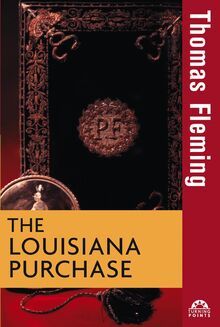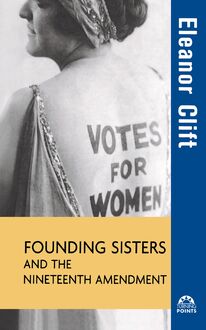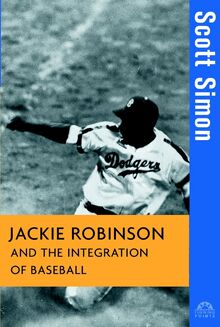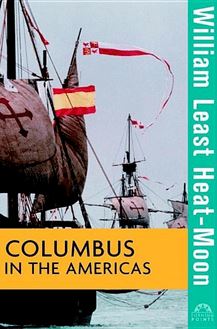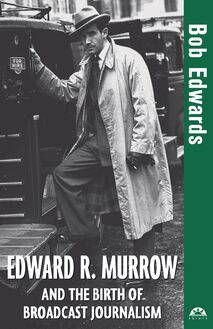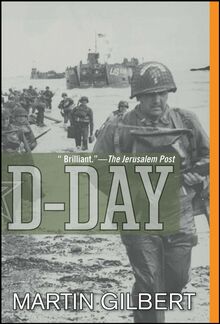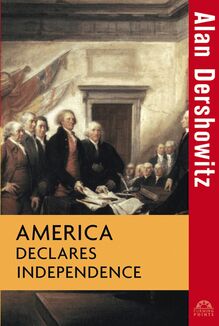-
 Univers
Univers
-
 Ebooks
Ebooks
-
 Livres audio
Livres audio
-
 Presse
Presse
-
 Podcasts
Podcasts
-
 BD
BD
-
 Documents
Documents
-
- Cours
- Révisions
- Ressources pédagogiques
- Sciences de l’éducation
- Manuels scolaires
- Langues
- Travaux de classe
- Annales de BEP
- Etudes supérieures
- Maternelle et primaire
- Fiches de lecture
- Orientation scolaire
- Méthodologie
- Corrigés de devoir
- Annales d’examens et concours
- Annales du bac
- Annales du brevet
- Rapports de stage
La lecture à portée de main
Vous pourrez modifier la taille du texte de cet ouvrage
Découvre YouScribe en t'inscrivant gratuitement
Je m'inscrisDécouvre YouScribe en t'inscrivant gratuitement
Je m'inscrisEn savoir plus
Vous pourrez modifier la taille du texte de cet ouvrage
En savoir plus

Description
"They brought balls of spun cotton and parrots and javelins and other little things that it would be tiresome to write down, and they gave everything for anything that was given to them. I was attentive and labored to find out if there was any gold."
With these portentous words, Christopher Columbus described one of his first encounters with Native Americans on the island of Guanahani, which he had named San Salvador and claimed for Spain the day before. In Columbus in the Americas, bestselling author William Least Heat-Moon reveals that Columbus's subsequent dealings with the cultures he encountered not only did considerable immediate harm, but also set the pattern of behavior for those who followed him.
Based on the logbook of Columbus and numerous other firsthand accounts of his four voyages to the New World, this vividly detailed history also examines the strengths and weaknesses of Columbus as a navigator, explorer, and leader. It recounts dramatic events such as the destruction of Fortress Navidad, the very first European settlement in the New World; a pitched battle in northern Panama with the native Guaymi people; and an agonizing year Columbus and his men spent marooned on a narrow spit of land in southern Jamaica.
Filled with stories of triumph and tragedy, courage and villainy, Columbus in the Americas offers a balanced yet unflinching portrait of the most famous and controversial explorer in history.
Prologue.
The First Voyage.
The Second Voyage.
The Third Voyage.
The Fourth Voyage.
A Chronology of Christopher Columbus.
Acknowledgments.
Sujets
Informations
| Publié par | Turner Publishing Company |
| Date de parution | 22 décembre 2010 |
| Nombre de lectures | 0 |
| EAN13 | 9781118039663 |
| Langue | English |
Informations légales : prix de location à la page 0,0550€. Cette information est donnée uniquement à titre indicatif conformément à la législation en vigueur.
Extrait
Table of Contents
Title Page
Copyright Page
Dedication
Prologue
The First Voyage
one
two
three
four
five
six
seven
eight
nine
ten
eleven
twelve
thirteen
fourteen
fifteen
sixteen
seventeen
eighteen
nineteen
twenty
twenty-one
The Second Voyage
one
two
three
four
five
six
seven
eight
nine
ten
The Third Voyage
one
two
three
four
The Fourth Voyage
one
two
three
four
five
six
A Chronology of Christopher Columbus
Acknowledgments
Copyright © 2002 by William Least Heat-Moon. All rights reserved
Maps copyright © 2002 by Laurel Aiello.
Excerpts from The Diario of Christopher Columbus’s First Voyage to America, 1492-1493, translated and edited by Oliver C. Dunn and James E. Kelley, Jr. Copyright © 1989 by the University of Oklahoma Press. Used with permission.
Excerpts from Admiral of the Ocean Sea: A Life of Chrisopher Columbus. Copyright © 1942 by Samuel Morison, originally published by Little, Brown & Co. Used with permission.
Excerpts from Journals and Other Documents on the Life and Voyages of Christopher Columbus. Copyright © 1963 by Samuel Morison, originally published by The Heritage Press. Used with permission.
Published by John Wiley & Sons, Inc., Hoboken, New Jersey Published simultaneously in Canada
Design and production by Navta Associates, Inc.
No part of this publication may be reproduced, stored in a retrieval system, or transmitted in any form or by any means, electronic, mechanical, photocopying, recording, scanning, or otherwise, except as permitted under Section 107 or 108 of the 1976 United States Copyright Act, without either the prior written permission of the Publisher, or authorization through payment of the appropriate per-copy fee to the Copyright Clearance Center, 222 Rosewood Drive, Danvers, MA 01923, (978) 750-8400, fax (978) 750-4470, or on the web at www.copyright.com . Requests to the Publisher for permission should be addressed to the Permissions Department, John Wiley & Sons, Inc., 111 River Street, Hoboken, NJ 07030, (201) 748-6011, fax (201) 748-6008, email: permcoordinator@wiley.com.
Limit of Liability/Disclaimer of Warranty: While the publisher and author have used their best efforts in preparing this book, they make no representations or warranties with respect to the accuracy or completeness of the contents of this book and specifically disclaim any implied warranties of merchantability or fitness for a particular purpose. No warranty may be created or extended by sales representatives or written sales materials. The advice and strategies contained herein may not be suitable for your situation. You should consult with a professional where appropriate. Neither the publisher nor the author shall be liable for any loss of profit or any other commercial damages, including but not limited to special, incidental, consequential, or other damages.
For general information about our other products and services, please contact our Customer Care Department within the United States at (800) 762-2974, outside the United States at (317) 572-3993 or fax (317) 572-4002.
Wiley also publishes its books in a variety of electronic formats. Some content that appears in print may not be available in electronic books.
ISBN 0-471-21189-3
This little book is for Mary Barile, Jack LaZebnik, Chris Walker
Prologue
Of the four crossings Christopher Columbus made to the Americas between his first departure in August 1492 and the return from his final voyage in November 1504, we know, happily, the most about the initial trip and its opening of the Americas to Europe. In fact, we know assuredly more about those 224 days of the original exploration than we do about the first four decades of his life.
Still, we could have learned even more had not the manuscript of his 1492-93 logbook and a subsequent copy of it both disappeared within fifty years of his death. Upon his return to Spain, Columbus went to Seville to report to King Ferdinand and Queen Isabella the results of what he called “the Enterprise of the Indies.” He gave to the Sovereigns his Diario de a Bordo (The Outboard Log) which the Queen had a scribe make an exact copy of for the newly proclaimed Admiral of the Ocean Sea. Those last two words are not a tautology but the prevailing name of the Atlantic, half of it then unknown. Columbus received the transcription six months later, just before leaving on his Second Voyage. The original has not been seen since Isabella’s death in 1504. When the explorer died two years later, the duplicate passed into his family where it also soon vanished. Today, we have only a slender hope that either the original logbook or its copy might some day come again to light.
Before the transcription disappeared, Bartolomé de Las Casas, a Dominican friar and historian who knew both Columbus and the Caribbean world, borrowed the duplicate long enough to make his own version which in places quotes directly from the Diario and in others is merely a summation of daily entries. The one for the second day of the First Voyage, for example, in its entirety is this: “They went southwest by south.” Fortunately, when Columbus reaches the Caribbean, Las Casas allows the entries to become longer and richer, often quoting its author to give details describing explorations among the islands.
The Las Casas rendition of the logbook is largely an abstract. Nevertheless, the most authoritative translation in English to date—the one of Oliver Dunn and James E. Kelley—requires nearly two hundred pages; we can assume what Columbus gave the Queen was a lengthy work indeed and, surely, for its own time and for many years to come, a nautical journal of unequaled fullness. In the long preface to his logbook, Columbus says he intends to record “very diligently” all that he will see and experience, so the loss of most of his own words is incalculable. Even in its abstracted state, we can fairly consider the Diario as one of the last grand documents of the Middle Ages and the first of a renaissance the Western Hemisphere would help generate in Europe.
The standard elements in a ship’s log are usually present: headings, speed, distance covered, wind direction, sea conditions, damage reports, and so forth. While these details may be of slight interest to many readers, they are important for the interpretation and reconstruction of just where and how Columbus and his men sailed, but we should realize that after five centuries, despite much research in the last couple of hundred years, we must make many assumptions, some of them still, and probably forever, highly debatable.
A few other sources help fill in gaps or reinforce interpretations of the log as they also give crucial information on the subsequent voyages. The monumental opus of Las Casas, his Historia de las Indies (History of the Indies) —a work, surprisingly, never fully translated into English—contains numerous additional details as does the biography of Columbus that his learned second son, Ferdinand, wrote. Two other sixteenth-century scholars also help flesh out the explorations: Gonzalo Fernández de Oviedo’s natural history of the Caribbean (Historia General y Natural de las Indias) complements Las Casas, and the Italian Peter Martyr’s account of the European opening of the New World—a term he popularized— De Rebus Oceanicis et Orbe Novo. From Columbus himself, we also have “the Barcelona Letter” of 1493 which concisely describes the First Voyage. Finally, we can draw upon four of the books Columbus owned, three of them replete with his annotations elaborating his geographical notions and his long belief that a ship could reach the Far East by sailing west.
In Columbus in the Americas, I have assembled his story from the explorer’s own words and these secondary sources, as well as from selected modern research and interpretations acknowledged sound by most contemporary historians. It is not the purpose of this small book to address the many controversies that surround Christopher Columbus. Everywhere, I have tried to remain within the facts enjoying the broadest acceptance so that readers may see who Columbus was and comprehend much of what he did and was attempting to do. My hope is that solid history will replace popular myths about the man who did not discover America but surely did open it, for better and for worse, to a substantial remaking. His is a story of high adventure and deep darkness.
The First Voyage
one
The stillness of that predawn Friday belied what was about to transpire. On August the third, the Tinto River, lying as unruffled as the air, gave no suggestion that the world was about to be remade—deeply, widely, powerfully, and at times violently. Every beginning has a thousand beginnings and those beginnings have a thousand more, so that all inceptions carry unnumbered antecedents. To say of anything, “At that moment and in that place, it all began,” is shortsighted, but within such shortsightedness, the European remaking of America and the American remaking of Europe began on a sluggish and undistinguished Spanish river near the commensurately undistinguished town of Palos not far from the Portuguese border. The King of Portugal, the greatest sea-faring nation of the day, had turned down an expedition like the one of three ships about to catch the tide half an hour before the summer sunrise and be pulled toward the sea.
Christopher Columbus, the Captain General of the fleet, took communion in a chapel nearby before boarding his flagship and, “in the name of Jesus,” giving the command to weigh anchors of the wooden vessels, small even by the standards of 1492. The seamen, perhaps taking up a chantey appropriate to the task, leaned into the long oars, stirred the polished river surface, and began moving the ships laden with enough provisions to last several months. Under the limp sa
-
 Univers
Univers
-
 Ebooks
Ebooks
-
 Livres audio
Livres audio
-
 Presse
Presse
-
 Podcasts
Podcasts
-
 BD
BD
-
 Documents
Documents
-
Jeunesse
-
Littérature
-
Ressources professionnelles
-
Santé et bien-être
-
Savoirs
-
Education
-
Loisirs et hobbies
-
Art, musique et cinéma
-
Actualité et débat de société
-
Jeunesse
-
Littérature
-
Ressources professionnelles
-
Santé et bien-être
-
Savoirs
-
Education
-
Loisirs et hobbies
-
Art, musique et cinéma
-
Actualité et débat de société
-
Actualités
-
Lifestyle
-
Presse jeunesse
-
Presse professionnelle
-
Pratique
-
Presse sportive
-
Presse internationale
-
Culture & Médias
-
Action et Aventures
-
Science-fiction et Fantasy
-
Société
-
Jeunesse
-
Littérature
-
Ressources professionnelles
-
Santé et bien-être
-
Savoirs
-
Education
-
Loisirs et hobbies
-
Art, musique et cinéma
-
Actualité et débat de société
- Cours
- Révisions
- Ressources pédagogiques
- Sciences de l’éducation
- Manuels scolaires
- Langues
- Travaux de classe
- Annales de BEP
- Etudes supérieures
- Maternelle et primaire
- Fiches de lecture
- Orientation scolaire
- Méthodologie
- Corrigés de devoir
- Annales d’examens et concours
- Annales du bac
- Annales du brevet
- Rapports de stage
